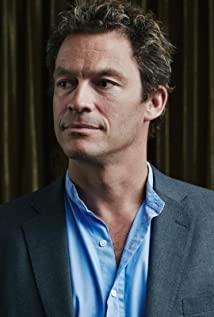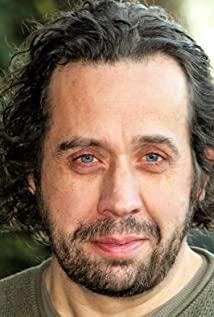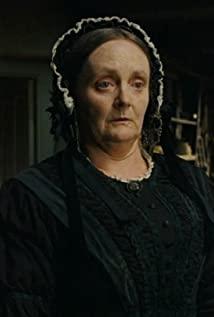This is a story about a writer and publisher editor who can be as famous as Hemingway in the history of modern American literature. In this story, there are three important characters, Thomas Wolfe, the genius writer; the book editor, Max Perkins, the genius Bole, and Thomas Wolfe's lover, Bernstein.
First of all I have to introduce the origin and background of these three people, so that the film can be more easily understood.
One,
the relationship between characters and characters in reality, emotions.
Character
1, Thomas Wolf
Thomas, one of the most important novelists in the history of American literature in the 20th century, is as famous as Hemingway and others, and is also the idol of Jack Kerouac, the representative of the later beat generation. Thomas was born in 1900 and died in 1938. In his short 38 years, he created a small but staggering number of words. He is good at writing feature-length novels, and his creative ability is quite strong. He can write 10,000 words a day, and he is constantly thinking about it. He has to submit manuscripts in bundles, or in boxes and boxes. The problem is that he is like the water of the Yangtze River. Can let go but can't take it. This was also a headache for the publishers at that time, because no one was willing to take the time to read his hundreds of thousands of words, small publishers were discouraged, and big publishers did not have so much time. This creative ability must be partly due to his character. In life, he is full of passion and poetry, and he speaks loudly and unrestrainedly, but these cannot hide his genius. Thomas's first book, "Angels, Look Hometown," received rave reviews after its publication. The book reviewer wrote in the "New York Times Book Review" (this is an important place in book review publications. Once the title is published, it is worth ten times.) In his writing, some trivial events, some daily trivialities, have become poems and the most profound meaning of life... He makes us recognize some familiar phenomena and truths... He uses The theme of the dull life in a small town is written so vividly and powerfully that it can be said to be unprecedented. Indeed, Thomas's literary works are filled with too many poetic descriptions, which is why his works are delivered in bundles. His descriptions are full of imagination and emotional atmosphere. He compares a young woman's blush to being kissed by the sun, her blue eyes beyond blue, like the sea.
"He saw a woman .......but now sun kissed as a blush...those were her arms ,but it was her eyes that stopped his breath and made his heart leap up. Blue they were. ...he saw her eyes were a blue beyond blue, like the ocean , blue beyond blue."
"He saw a woman...the sun kissed her and gave her blush...those were Her arms, but her eyes stopped his breath and made his heart beat. The blue was her eyes...he saw her eyes were blue, blue beyond blue, Like the sea, blue beyond blue"
is also precisely because of Thomas' unique poetic description, which makes his work both unique and overly verbose.
2.
Max Perkins Max Perkins was a rare senior book editor at that time. He graduated from Harvard University and presided over the Cherce Schquibler Publishing Company, a publisher for three generations. The literary world has published a number of good books, including Hemingway and Fitzgerald. According to Thomas' description, Perkins was born into a family in England. When they met, Perkins was over forty, but he looked much younger than his actual age, well-dressed and civilized. In character, Perkins is taciturn, like a wise man, with restrained and deep feelings, and the difference from Thomas is quite obvious. However, his literary skills are quite unusual. He often tells Thomas that 50,000 words must be deleted somewhere in his works, but this deletion does not affect the overall content and integrity of the text, but makes it more compact and experienced. Thomas's suggestion to Perkins He is also obedient, and he admires and admires this book editor from the bottom of his heart. (But the interesting thing is that Thomas’s creativity has long exceeded Perkins’ expectations. He often deletes 50,000 words, and he can immediately come up with tens of thousands of words. And Thomas is really like in the movie in reality, standing Writing articles, relying on the refrigerator.)
3.
At the age of 25, Thomas Bernstein met this 44-year-old middle-aged woman who was married and had a child of her own on the way to anti-Americanism. In the following years, his lover, who was nearly 20 years older than him, took great care of his life. Bernstein is a stage design expert, a professional woman, but for Thomas, she almost sacrificed her family, children, career and dignity, and devoted herself to Thomas. Thomas' second novel "Time and the River" wrote about a young man and a woman who met on a boat, and it was written so tenderly that you can see their sweet love at that time.
Character Relationship
1, Thomas and Perkins
Thomas said to Perkins in a letter of thanks: ''A sense of knowing that almost brought him to tears''. Also said ''Life must have a certain amount of support to be able to stand still, you are one of the rocks I rely on... The past year has been a great year, even if there is nothing else, just know Perkins is amazing. ''These letters are enough to see Perkins' position in Thomas' heart. The two can be said to be friends in previous years, and they are like father and son. After the great success of the first book, Thomas was still unable to settle down. He wrote quickly and quickly. He was even less organized than the first book. He was in a state of frenzied creation for a long time, and sometimes fell into the bottleneck period of writing. Worry about whether he can use his creativity in the limited time. At this time, Perkins encouraged him, forced him, and stayed by his side with the calm and rational calm that Thomas did not have. Everyone knows that talented writers regard creation as the first priority in their lives. At this time, Perkins and Thomas's relationship has also heated up rapidly. They are inseparable, and even leave their families behind each other. Finally, after the torment, Thomas' second book "Time and River" was published, Thomas said in the letter: Now I can't separate you from my book... The situation where you are admiring the flowers in my manuscript day and night ...you did what I didn't believe one could do for another, but you did. You have created freedom and hope for me. Thomas made a long preface that he wanted to put at the beginning of the second book, but Perkins humbly refused, and Thomas used this preface as a speech when he attended the speech. This speech was later published as a small book, and then became a contradictory outlet for Thomas and Perkins' parting ways. Some critics say that Thomas must rely on Perkins' ability to edit the novel to complete the expressive ability of his novel art form, and some even say that Thomas can't do what a novelist should do independently, but with the help of booksellers. Class cloud. This deeply hurt Thomas' self-esteem, misunderstanding, silence and the like finally became the fuse that was lit, and the two parted ways. However, when Thomas was in trouble, it was Perkins' "not giving up" that finally saved Thomas: I didn't give up, it wasn't that I didn't want to give up, it was the person who didn't let me give up. After that, Thomas lived up to his expectations and wrote a successful work similar to "Angel, Looking Back at Hometown". Thomas had actually reconciled with Perkins a year before his death. He knew that his illness was powerless, so he wrote a text message to stay with Perkins, who was also the owner of Thomas' entire estate and literary affairs. executor.
2. Thomas, Perkins and Bernstein
Thomas and Perkins' relationship and emotions will not be repeated, but there is also a 44-year-old woman between them, Thomas' lover, Bernstein. As mentioned earlier, when Bernstein met Thomas, she actually already had a family and a career. In Beinstein's words, she gave up all and even her dignity to love Thomas. Then he spent most of his time with Perkins while Thomas was writing and revising his novel, looking down on Manhattan, drinking together, walking in Central Park, and writing together. During this period of time, Bernstein deeply felt that he was left out. The so-called woman, too few can not love, so Beinstein began to hold a grudge against Perkins and even thought that he took away the man he loved and starved her, and she threatened her many times. Perkins fought to death, but Thomas, a talented creator, of course, regarded creation as the first, which deeply hurt Bernstein. The lawsuit was filed, stating that the works in Thomas involve her personal privacy (most of the author's creations are autobiographical), but it is interesting that Beinstein's works are not actually published in his collection of short stories, readers It is only a guess that such an important lover must have been written but not published.
Second, there are too many biographical films in the movie "Genius Catcher" , especially this kind of mentor and apprentice. The farther "Soul Catcher" and the nearer "Eagle Eddie" are all good works. However, as this "Genius Catcher" is a biography of a writer, it is difficult to see whether the audience knows this literary master, and whether the audience recognizes him as a literary master or through this film, and whether he can be influenced by others during the development of the story. Literary works are moved, which is a very important and very difficult place. If the quotation of the work can resonate with the audience in just a few sentences, then of course the setting of the later plot can easily arouse the audience's emotional resonance.
The film begins with Thomas (Jude Law) standing in the rain waiting, rhythmically tapping the ground with the soles of his feet. The camera and Perkins (Colin Firth) critique the literary work for cross-editing, directly telling the audience that the two have a certain implicit relationship. Needless to say, these two actors have both appeared in literary and artistic films. Of course, Colin Firth's performance has a strong sense of substitution. Okay, so the story begins, Perkins on the train and on the way home with texts sent by the reader Thomas, making it impossible to stop. The reality is indeed the same. He gave the text to his great assistant to read, and everyone couldn't stop reading it and wanted to read it. In the car, Jude Law slowly read out the poetic but philosophical beginning of Thomas' "Angel, Looking Hometown".
"...a stone, a leaf, a door not found; say a stone, a leaf, a door. And all the forgotten faces .
…
Who really knows her brother? Who has explored his father's heart? Who hasn't been locked up in prison all his life? Who hasn't been a stranger forever, forever alone?
…"
If you can't be drawn to this opening and don't think it's going to be a great work, that's okay, just admit its greatness subjectively, because the story of this movie must be based on a great writer and a great bookseller. When you subjectively accept the greatness of his works and the genius and greatness of Perkins as a book dealer, then you can truly accept the emotion or logic of the story, and the film can pass the meaning or logic it expresses. Emotions put you in it.
Next, the story of the two protagonists continues. Just like the reality, Thomas' arrogance and creative enthusiasm are shown meticulously by Jude Law, while Perkins' silence and rationality, and his inability to express his feelings, are also reflected by Colin Firth's own gentlemanly temperament. And the acting is flawless.
The movie "Genius Catcher" feels like it can sort out the three clues it wants to express.
1. We regard him as a personal biographical film of Thomas, so it seems that the role of Thomas is not enough. Thomas went from an unknown person to a well-known writer, and he also has a personality and then changes. Then the film from this angle can be said to be a personal biographical film of Thomas, and as for other people, no matter how important they are, they can only be An auxiliary to highlight Thomas.
2. Look at the title, "Genius Catcher", which is "Genius" in English. Of course, this genius fell on the editor Perkins. In the same way, Thomas's role seems to be insufficient. times are not very clear. In this way, Thomas's role can only pave the way for Perkins' genius, and the theme and emotion of the film can be well reflected.
3. I think it should be seen in the same way. The film tells the story of the relationship between Thomas and Perkins, their friendship and spiritual resonance, and the goal of their life: to write great works and dig out and publish the best. Great work.
Like all mentoring movies, in this long relationship, the apprentice is changed, and the mentor is also through this relationship, his life and character are changed or he sees something that he has been ignoring or like Like the New World, new discoveries have been made at a certain level. The director and screenwriter of this film also set this up, but they always make the audience feel that something is not enough. In fact, the accumulation of emotions is not enough. When the accumulation of emotions is not enough, the story comes to the end, and the impact of an event or object is natural. cannot meet the expected standard. In "Good Will Hunting", Will is like Thomas, talented but arrogant, and psychology professor Sean even kicked him out of his office when he saw him for the first time, which is such a conflict and foreshadowing , in order to slowly make up the relationship between the two people, and finally to the end of the story. The audience applauded. After all, a bad boy finally got on the right track. No one wants to see such a positive ending. Besides, Eddie in "Eagle Eddie" has a very different personality from his mentor. From a persevering study and a persevering refusal to finally stand on the same line, the narrative of the relationship in between adds some interesting plots, naturally It brings the emotions and logic of the audience to the ending that the director and screenwriter want to reach. But a movie like "Eagle Eddie", as long as the narrative is not procrastinated, the plot is lively and interesting, and there are some cute and handsome episodes, which are lighthearted and humorous, and the positive energy released at the end landed with an overhead shot of "Flying Eagle". The lens is naturally instilled into the tear ducts of all the audience. "Genius Catcher" is different. He is a literary type. This kind of thing comes slowly. Fortunately, the director and screenwriter have caught this. But there's a little bit of a lack of character creation.
Of course, Perkins is an emotionally restrained person. His relationship with his family is not bad, but in this family with many daughters and many wives and his own hobbies, Perkins, as the head of the family, always thinks that he has not paid enough emotionally. Thomas, on the other hand, just happened to be passionate, his words were amazing, and he made no secret of it. At the beginning, the two people were out of tune in personality, and the experience of listening to jazz in a bar quietly melted away. Perkins slowly tapped Thomas under the table with the soles of his feet, like Thomas standing in the rain at the beginning of the movie, smoking a cigarette to the beat. If this scene were a little longer, with a little simpler plot, mixed with the embarrassment of their different personalities, then the audience would naturally have their emotions brewed, and beat the rhythm with their feet with the beat. The second scene about the transformation of the two people's personalities comes from Thomas' lover Bernstein, played by Nicole Kidman. Bernstein couldn't stand Thomas not coming home for a long time, not caring about her work, emotional behavior. She put the blame on Perkins, believing that he stole her lover. So, women, always, can't understand the loneliness and resonance that a talented creator needs and values. Creators build their own absolute loneliness, but once this loneliness is broken by the impact of success, creators cannot return to that best state to create. The so-called hard years make the best works of art. Bernstein, like most women, will never understand this truth. The love she cared about, on the one hand, expecting her lover to succeed, on the other hand, expecting him to continue to create, has long been destroyed. So she went to Perkins' office to make threats, either with a gun or with suicide, and then Thomas just took her away and returned to Perkins' office after two sweet words. In the eyes of creators like Thomas, love is not just an outlet for emotional life, which can be sublimated to a heroic dream, but it cannot replace the ultimate dream of his creation. Perkins finally realized what was happening, waited at the door of the house for the cars of the daughters who had returned from vacation with his wife, and then kissed his wife in front of her daughters. A piece of ice, the director melted it here, finally.
After that, just like the plot in real life, Perkins and Thomas were assigned to Yang Biao. In the movie, the reason for their separation is lightly mentioned, but it is very powerful. Just like Thomas said, the reason why Tolstoy's work is called "War and Peace" is because the editor did not play the role of the writer, otherwise he would change more It can only be called "War" and not peace. In fact, in reality, Perkins also deleted Thomas' works while retaining the original work, and sometimes he even took the initiative not to delete some places because the writing was very moving and Thomas. After the movie, Thomas traveled west and finally understood something at the seaside, but it was too late and fell in the hospital. Perkins took Thomas' last letter, and finally the category. Colin Firth's tears fell drop by drop.
Thomas's final letter to Perkins:
Dear Max:
I am writing this letter secretly against the doctor's orders. I have a "hunch" -- I'd love to write it down and tell you.
I took a long journey to a strange country. I am very close to the shadow of the god of death, and I don't feel very afraid of him, but the idea of unavoidable death in the end still haunts me. I used to want to live so badly, and I still want to live, so I think you've thought about it more than a thousand times. I so want to see you all again. At the same time, there is an irreparable anxiety and regret at the thought that there are so many things I should have done and not done.
I know that I am just a drop in the ocean, and I feel that what unfolds before my eyes is like a window of life that I have never realized before. If I can get past this, I'd like to be a little better than I used to be; weird ideas I can't explain - I know I'm a little deeper, a little smarter now. If I can get up and get out of this place, I'll be back in a few months; but as long as I can, I'll be back.
No matter what happens - I have this ''hunch'' to write to you, no matter what has happened, or what is going to happen, I will always think of you, thinking of the National Day three years ago, when you arrived The pier came to pick me up, then we had a drink in a small tavern by the river, and then we went to the roof of a tall building, looking down, the wonder, brilliance and vitality of the city were presented in front of our eyes.
your tom
august 12, 1938
I put the end of Thomas's novel "Angel, Looking at Hometown" at the end, and I hope that interested people can read Thomas's works. Really great.
But now he was standing next to the angel in his father's corridor for the last time, and the square before him seemed far, far away. Perhaps, I should say, he stood like a man on a hill overlooking the town he had just left. But he didn't say: "This town is just around the corner", he only looked at the mountains towering in the distance.
For historical events, refer to "Angel, Looking at Hometown", published by Sanlian Publishing.
View more about Genius reviews











